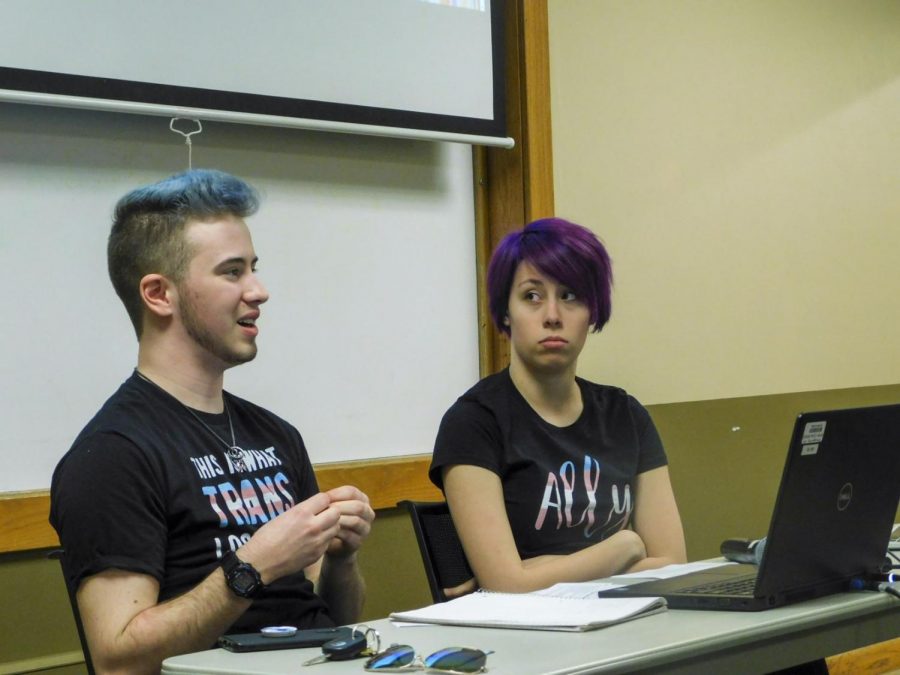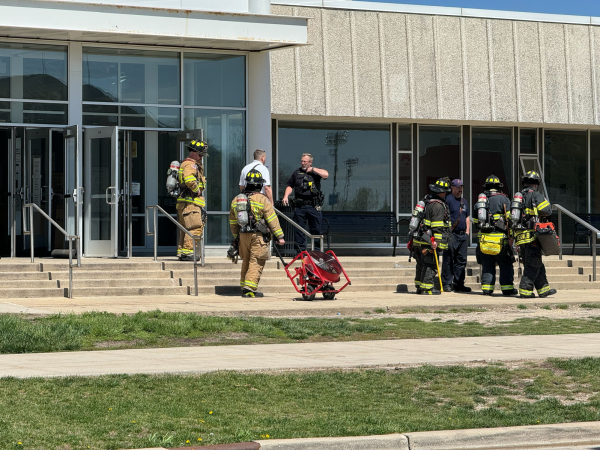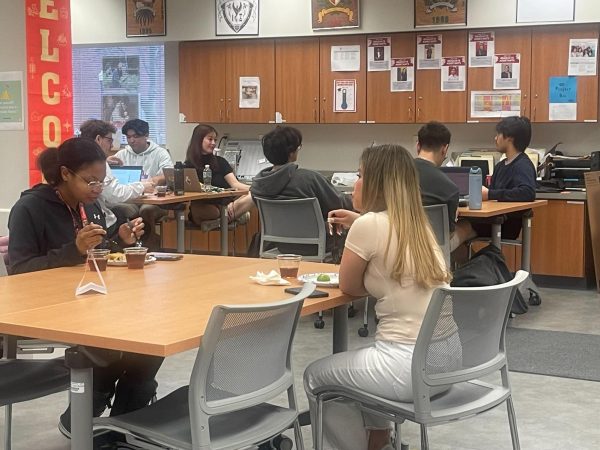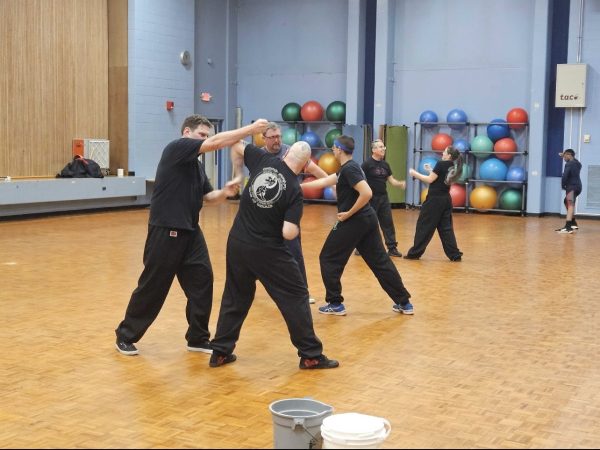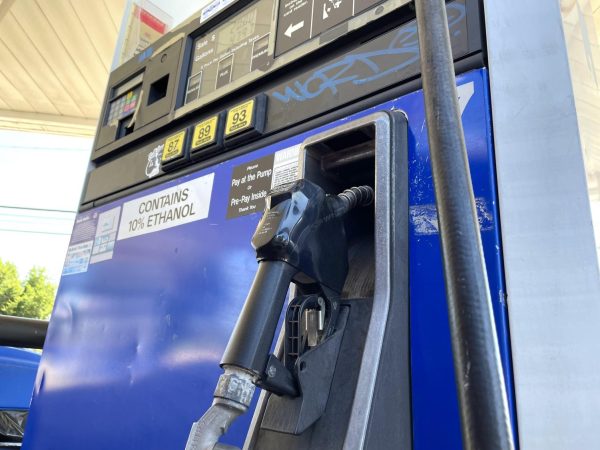Allies on campus
Sophomore anthropology major Dallas Douglas (left) and Grace Rodriguez, first-year special education major, introduce “How to be an Ally on Campus.”
April 4, 2019
DeKALB — A new website providing resources for transgender allyship has been initiated by several NIU students hoping to produce new partnerships on campus.
At 12:30 p.m. Tuesday afternoon in the Heritage Room of the Holmes Student Center, sophomore anthropology major Dallas Douglass and Grace Rodriguez, first-year special education major, hosted an introduction to their website Softened Edges, which began as a project for an English course with another student, Veronica Woods.
Softened Edges is the working title of the project, which promotes methods for students, faculty and staff to better engage with their transgender peers.
A glossary, resource directory and guide for syllabus additions to better accommodate transgender students has all been compiled on the website.
Douglass said keeping an open mind is the first step in providing support, and maintaining that support even when not in the presence of transgender people makes a big difference.
“If you’re coming from a place of respect and curiosity, [a transgender person] isn’t going to be upset with you,” Douglass said. “If you’re able to do something, do it. Stick up for your trans friends when they’re not there.”
The website presents the findings of a small survey Douglass, Rodriguez and Woods conducted on the level of engagement observed between transgender and cisgender students at NIU.
Douglass said transgender students expressed the desire to see more opportunities and programs for engagement. He also said cisgender students responded in favor of educational programs targeted toward methods in allyship.
The website also provides a glossary of terms useful for individuals unfamiliar with the specific language used by the transgender community to describe gender categories and other vocabulary around the transgender experience.
The importance of proper pronoun usage was brought up many times by Douglass, who said it should be considered more as a mandate rather than a preference. His own experiences being misgendered while transitioning informed this perspective.
Douglass said he intends to keep promoting the website through the Gender and Sexuality Research Center, which also maintains the site. Through his father, who is employed by Hyatt Hotels Corporation, he was able to present his research before a group of board members of the Hyatt Regency in Chicago the week prior about equal opportunity in employment.
Douglass said he hopes to attend a symposium in Springfield to bring the issue to state politicians.
“We’re hoping,” Douglass said. “It would be a great opportunity.”
Gender and Sexuality Resource Director Molly Holmes dropped by the presentation to thank and endorse Softened Edges.
“It’s really important,” Holmes said. “When this is done by students, for students, it can really ensure that voices can be heard. It speaks on a particular level that you know from research but also from your lived experiences.”
After accepting questions from attendees about the website and further plans for the project, Douglass brought forward Kelsey Williams, an English graduate student and local disability advocate who identifies as genderfluid, to host a panel about navigating the world while transgender.
Williams and Douglass discussed their experiences around discovering their gender identities and their involvement in campus activism.
Williams said she has taken a particular interest in the intersection of race and class with gender identity. She hopes more engagement on campus can lead to discussions centered around improving access to gender confirmation surgeries for people with low incomes.
“Some of the groups I’m closest to are working class, low income and people with disabilities,” Williams said. “If I’m going to be going to or hosting an event, I’d want to think about if there’s a cost to get there, if there’s an issue with transportation, a cover charge, childcare, providing food and drink. For people with disabilities, accessibility can be very structural, [such as] if there’s stairs, a ramp, sufficient lighting, good acoustics, an [American Sign Language] interpreter.
She also said eliminating barriers in communication is the key to further engagement.
“I have a lot of friends who have not gone to college or finished high school, so they understand the ideas, but not always the language. I try to talk to them in their words they’ll know so I’m not coming at them like ‘I’m gender non-conforming and this means this and you need to accept that.’ I’ve gotten to a point where they all accept me for who I am, so it was us slowly coming to understand each other.”
Visit the Softened Edges website at trans-ally.weebly.com.


